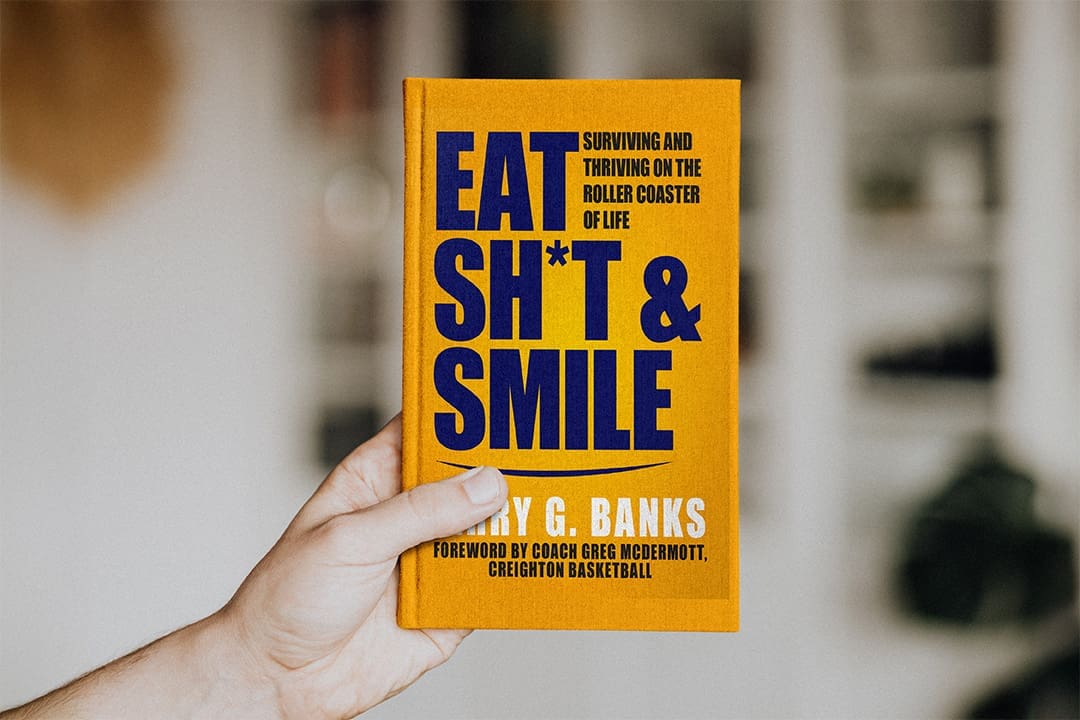Losing Control of Life’s Steering Wheel
When you lose control of life’s steering wheel, you must stay resilient and trust you’ll come out whole on the other side. Sometimes you have to do things you don’t want to do to survive, but you must never sacrifice your ethics or values for a paycheck.
Staying resilient, even when you don’t know if the payoff will come, is often the hardest thing to do, especially when you’re in a place that feels like you keep losing. Abandoning your ethics and values also pays—in negative returns. I’ve always held the belief that good things happen to good people and that the opposite side of that equation also holds true.
I had firsthand experience with this in 1985 when I took a significant detour from my dream venturing into a pizza franchising business that flourished until it failed. I survived, but things got worse before they got better. Whatever feelings of relief I had from avoiding bankruptcy a second time didn’t last long since, with no work and still in debt, my marriage suffered, and the bills kept piling in. My confidence was shot.
I’d climbed the mountaintop, only to have it crumble beneath my feet. I felt defeated, but quitting wasn’t an option because I wasn’t just taking care of me. I had a wife and two daughters who depended on me. Whatever emotions I felt, I had to shove them down into the darkness of my gut and keep going.
Survival mode kicked in, and every day became a struggle.
A Depressing Season of Life
During that depressing season of my life, I sulked around a grocery store one day trying my best to buy the family food staples on our meager budget when I ran into a business acquaintance, a man I knew from my time in the real estate world. He remembered my successful track record in real estate and asked what I was doing now. I felt embarrassed to tell the truth, but I did, admitting I was looking for new work.
To my surprise, he told me he might have something and to come see him the following Monday. I didn’t even bother to ask what it was. I just felt grateful for a new opportunity.
That opportunity brought me in some money on a $50,000 a year salary, but it ended when I realized their business practices were unethical at best or illegal at worst, so I resigned.
A few weeks after submitting my resignation, I contacted Sheri Andrews, the chief financial officer of Lozier Enterprises, which functioned as the holding company for all of Allan Lozier’s family operations and investments, including the Lozier Corporation. I wanted to reintroduce myself and tell her I had left the employment of the previous company.
I remember her comment. “Good decision, Jerry.”
Seeking a Lifeline
I told Sherry I was looking to put together capital investors to purchase market rate apartment complexes in Texas. Then I asked if she thought Mr. Lozier would have any interest in investing with me? She asked me to come see her later in the week.
The Lozier Corporation was and remains the leading manufacturer of shelving retailers in stores and warehouses use. If you walk into just about any Target, Walgreens, or other major retailer, you’ll find that Lozier manufactured all or most of the shelves. Lozier Enterprises is the unofficial name for a collection of enterprises and investments owned by Allan Lozier and his family prior to Allan’s passing in 2021. This includes the manufacturing enterprise, banking enterprises, a steel foundry company, stocks, bonds, the Lozier Foundation, and of course, real estate.
I didn’t know what to expect during my upcoming meeting with Sheri, but the fact that I was meeting with a company of this stature gave me hope. As an unemployed husband and father, anything, even a short-term one-off deal, would help.
I arrived at the Lozier building ready to give my best pitch to Sheri. I’d spent days preparing, knowing she was a pro and every little detail supporting my case would be valuable. As soon as I arrived, Lisa Hansen, Sheri’s administrative assistant, promptly took me to Sheri’s desk.
“Jerry, good to see you again.”
“Great to see you, Sheri. Thank you for taking this meeting.”
I thought we’d chitchat for a bit, then I’d work my way into the presentation. I was wrong. As soon as I sat down, Sheri took control.
“Look Jerry, I appreciate you coming in, but Mr. Lozier doesn’t have an interest in partnerships.”
And just like that, even before I could make a case, the door slammed in my face. The days of preparation were all for naught. I was stunned and struggled to find a response.
“Oh. Okay,” I said, shuffling my files in my hand. “I guess you don’t want to see these.”
“I have a proposition for you. We’re potentially looking to hire someone to start a real estate investment portfolio for the Lozier family. Would you have any interest in applying for the position?”
Again, I was stunned.
A Surprising Opportunity Knocks
I went from optimistic, to kicked into a ditch, to now being offered the opportunity to work for one of the biggest and most successful businesses in the country. Talk about a roller coaster of emotions. I did my best not to show my desperate gratitude for the opportunity.
“Well, Sheri, I didn’t expect this, but yes, I suppose I would like to know more about the opportunity.”
“You’d like to apply for the position?”
“Yes, I would.”
That moment led to a series of meetings that lasted for over three months.
Sheri would meet with me most Tuesdays and Thursdays. On Tuesday she’d give me a yellow sheet of paper with a series of handwritten questions from Mr. Lozier about my theories on investment real estate, portfolio building, financing, and portfolio management. I’d take the questions home and type up a white paper response. Then I’d return on Thursday to review my ideas with Sheri. The following week, we’d meet on Tuesday to review Mr. Lozier’s responses, along with a new set of questions.
During this three-month “job interview,” we never once talked about the job description, salary, or company benefits. It was a nose-to-the-grindstone test of my thinking process and my theories in real estate. Later came questions that tested the application of my ideas and suggestions.
Many times during the process I just wanted to say, “Enough! Do I have the job or not?” It felt like I was writing a handbook on how to buy and hold investment real estate. If I wasn’t hired, I’d have given away a valuable manual of information. But I needed the job, and all my instincts told me I could trust Sheri, so I stayed determined to see the process through.
I did wonder what might happen if, after all this work, they passed on me. That was a real risk that crossed my mind more than once, but I trusted I was demonstrating my competence, so sticking it out should pay off. All the while at home we were surviving on credit cards and the meager earnings from a job Karen had taken.
Meeting Mr. Allan Lozier
At the end of three months, Sheri told me it was time for me to meet Allan. She scheduled an appointment for me on Thursday, October 29, 1992, at 10:30 a.m. I hadn’t yet met Allan Lozier, so I had no idea what to expect. I did remember my father had built a house in Glenwood for an engineer who’d worked several years with Mr. Lozier at the Lozier Corporation. I knew this engineer well enough, so I called him and asked for his thoughts about what to expect at the meeting with Mr. Lozier.
He told me Allan rarely met with people and that the meetings were always short. He guessed it would likely be a five-minute meet and greet. I was relieved to hear that, so that’s what I mentally prepared for on the day of my “interview” with Mr. Lozier.
Once I arrived, Allan’s office seemed surprisingly economical—not the opulent office of a rich guy I’d imagined. Books lined the back wall, and his ordinary office desk stood next to another four-person table for meetings.
The first thing I noticed about Allan Lozier was his size. At six feet eight inches tall, he was an imposing figure to meet. Since I was already nervous, I consoled myself by remembering my friend said Allan preferred short meetings. It turned out that scouting report was way off.
For the next hour and a half, Allan grilled me on every topic imaginable. He had a thick stack of papers in front of him with notes written all over the margins. The stack included my résumé and all the white papers I had written over the prior three months.
First he dug into my Century 21 experience from over a decade ago. Then he asked business and personal questions related to the pizza business failure. They weren’t insulting, but he wanted to know my perspective on what happened and what I learned. He also asked about my goals, my parents, and other personal questions.
I thought to myself, “What does this have to do with what you possibly hire me to do?” I felt like he was stripping me down and exposing all my weaknesses. I did the only thing I could think of: I was as open and honest as possible.
After ninety minutes, he had worked through the stack of documents.
I felt mentally exhausted, wondering what he’d throw at me next.
Allan picked up the pile of papers between us and set them aside. Then he swiveled his chair around to his desk and started to work on something. I sat in silence, waiting for him to say something or turn back around.
He didn’t.
After an uncomfortable amount of time passed, I leaned over in my chair and looked toward the door. Thankfully, I made eye contact with his admin, Ginny. She signaled for me to exit. As I rose from my chair, Allan didn’t budge or turn to say goodbye to me. Making my way to the door, I looked back at Allan, but he never looked my way.
Finally, I was out and standing in front of Ginny. I’d survived.
“What just happened?” I asked her.
“He’s done.”
I didn’t know what to think.
I felt good about my transparent responses, but I couldn’t gauge how Allan had received them. Sheri Andrews wasn’t around, so I left the building and headed home, feeling bewildered. That day I experienced one of Mr. Lozier’s idiosyncrasies. At the conclusion of our meeting, he never said, “We’re done,” or “Thank you for coming in.” He just turned his chair around and started working on something else. Over time, I learned this was his typical behavior. He didn’t bother with conventional courtesies.
I’d just made my way home and walked through the door when the phone rang.
“Jerry,” Sheri asked, “what happened in your meeting with Allan?”
“I have no idea. You tell me! All I can tell you is he grilled me for an hour and a half.”
“Stay by the phone. I’ll call you right back.”
Thirty minutes later, the phone rang.
“You’ve got the job. Can you start on Tuesday morning at 8:00 a.m.?”
My head spun.
“Wait a minute, Sheri. We haven’t talked about salary or benefits.”
“Don’t worry about that, Jerry. We’ll work it all out next week. See you Tuesday?”
In the past I would’ve never accepted a job like this, but I was desperate and felt like these were good people. The company had an outstanding reputation, so I trusted my gut and said, “Yes. See you Tuesday.”
Tuesday, November 2, 1992, happened because I kept practicing what I now call “The 6 Keys to Living with Resiliency.”
It would also be the first day of a lucrative and fulfilling, twenty-three-plus year career working for Allan Lozier.
The 6 Keys to Living with Resiliency
- Accept Responsibility: Acknowledge you’re in charge of your own future and destiny. Life may throw unexpected challenges your way, but it’s your responsibility to navigate through them and stay true to your values, even in tough times.
- Embrace Change: Understand that change is inevitable, and sometimes you may need to walk away from situations, even when it hurts. Resilience involves adapting to change and finding alternative paths to achieve your dreams.
- Adopt a Survival Mindset: In the face of adversity, such as financial struggles or personal setbacks, it’s crucial to enter survival mode. This means pushing through emotions and focusing on the necessities to keep moving forward.
- Maintain Ethical Integrity: Stay true to your moral compass, even when faced with unethical situations. The decision to disassociate from unethical practices, despite financial or personal risks, is foundational to living with resiliency.
- Stay Open to Opportunity: New opportunities, even when they come from unexpected sources, can make all the difference. Resilience involves being adaptable and ready to seize chances that can lead to positive changes in your life.
- Persist Through Uncertainty: The journey to success is often filled with uncertainties. Resilient individuals continue to push forward, even when the outcome is unclear, trusting that their efforts will eventually pay off.
Note: “Resiliency Yields Big Returns” is excerpted from Jerry’s book, Eat Sh*t & Smile: Surviving and Thriving on the Roller Coaster of Life.



